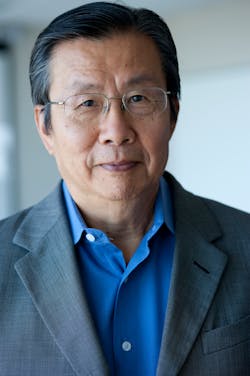
Q: I am a second-year PhD student working for a well-known photonics professor in a non-US country. The advice I am getting from post-docs in his group is to quit the program because they see little hope of getting a job. What is your opinion?
A:I am shocked that this kind of opinion is floating out there. The popular saying "photonics is enabling" is telling you that photonics is a good field to be in. That phrase is another way of saying there is no shortage of job opportunities for anyone in photonics, especially for those who have expanded their horizons to become an insider in an industry of their choosing. This phrase also implies you may have to continue learning even after you get your degree.
You have three options at this point: Finish your PhD program working with your current professor, join another photonics professor, or change your major. Of course you can also quit school altogether; I do not consider that an option but rather a last resort. You really don't want to get into the habit of being a quitter and wind up drifting from one project to another with no accomplishments to point to. An important lesson to learn from this episode is to always do due diligence before taking on any project. Gather data, get input from knowledgeable people, and digest what you have learned before deciding what is right for you.
Consider completing your PhD program with your current professor. This is a sound decision if you can see the doctorate as one phase of learning and growing. The point behind writing a thesis is not how useful the thesis topic is that you have chosen; rather, it is an opportunity to learn the process of solving a problem. Time is not wasted if you don't stop there but go on to expand your scope. Being an expert in one field does not preclude you from learning something new. On the contrary, the experience of writing a thesis enables you to easily get into another field to provide you with additional career options.
A good example is Pat Nettle, executive chairman of Ciena, who has a PhD in physics from Caltech. He learned enough about finance to become CFO (chief financial officer) of a Silicon Valley company before becoming CEO (chief executive officer) and president of Ciena, which, as you know, is a multibillion-dollar optical telecommunications company. I can cite many more examples of individuals who successfully advanced their careers by gaining expertise in multiple fields.
It is possible that your professor has a reputation of working on esoteric topics that are of no interest to industry. Even so, you may be able to turn this situation into a positive by working with him to find an esoteric topic that has the potential to lead to a breakthrough application. Doing so will also earn your professor's respect and provide you with an opportunity to practice leadership skills, which is nice to add to your repertoire.
In your professor's defense, it is possible that job opportunities are limited where you are. Consider moving to a place where opportunities abound. Many of your predecessors have successfully established a beachhead in the United States. Given today's political sentiment here, I believe by the time you graduate, immigration regulations will be modified to encourage the immigration of well-educated individuals into this country.
Since I am giving career advice, I would like to add that I am somewhat bothered by the advice to "go with your passion" given to young people. The truth is most of them do not know their true passion, the possibilities available to them, and where their intrinsic abilities can be applied optimally, and most of them may not have given much thought to the consequences or the likely outcome of their choices. A more practical piece of advice is "understand where your real talents are, and also visualize the likely outcome before making career choices."
About the Author
Milton Chang
MILTON CHANG of Incubic Management was president of Newport and New Focus. He is currently director of mBio Diagnostics and Aurrion; a trustee of Caltech; a member of the SEC Advisory Committee on Small and Emerging Companies; and serves on advisory boards and mentors entrepreneurs. Chang is a Fellow of IEEE, OSA, and LIA. Direct your business, management, and career questions to him at [email protected], and check out his book Toward Entrepreneurship at www.miltonchang.com.
